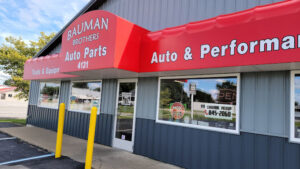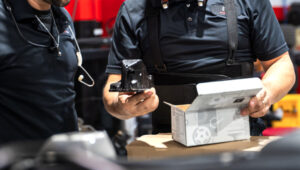Study highlights the limited options vehicle owners and independent repair shops have due to repair restrictions imposed by auto manufacturers
Washington, D.C.—The CAR Coalition — a growing group of independent automotive parts, management and repair companies, associations, and insurers — pointed to a new report this week from the U.S. Government Accountability Office (GAO) focused on vehicle repair as evidence that federal vehicle right-to-repair laws are needed.
The report entitled “Vehicle Repair: Information on Evolving Vehicle Technologies and Consumer Choice” highlights the limited options vehicle owners have due to repair restrictions imposed by auto manufacturers. These include data limitation and an inability for independent repair shops to service vehicles without manufacturer tools. The bipartisan SMART (H.R. 1707) and REPAIR (H.R. 906) Acts would provide consumers and independent repair shops with the data, tools, and parts they need to service vehicles in a safe and efficient manner.

“This new report from the GAO is more evidence that repair options for vehicle owners are being limited by auto manufacturers,” CAR Coalition Executive Director Justin Rzepka said. “It’s beyond time for the Congress to address this issue and ensure that Americans can choose where and who repairs their vehicles. If they want to go to an independent repair shop, they should be able to do so. The bipartisan SMART and REPAIR Acts are specifically focused on righting this wrong.”
The report featured an analysis of current regulations and interviews with vehicle repair stakeholders. Among the key takeaways in the report were: “If independent repair shops face limitations in access to the information, data, and tools needed for repair or are otherwise disadvantaged compared to dealerships, consumers may have fewer repair choices, which may reduce competition and make repairs more expensive and inconvenient.”
It also outlined how these restrictions could impact consumers. The report stated: “The potential negative effects of reduced consumer choice may not be felt equally among all vehicle owners. For example, low-income or rural consumers could be harmed the most, according to five independent repair shops and independent repair associations.
Specifically, low-income consumers may have more difficulty paying if there is an increased cost of repairs. Rural customers may have fewer local options to begin with so may need to take their vehicles to dealerships or other facilities further away if local repair shops were to close.”
According to a recent YouGov Survey of 1,000 vehicle owners, Americans believe they should be able to decide where and who repairs their vehicle and have access to their vehicle’s data. They also showed a strong preference for independent repair shops over dealerships. According to the poll, 94% want to choose WHERE their vehicle is repaired and 93% want to choose WHO repairs their vehicle.









Comments are closed.